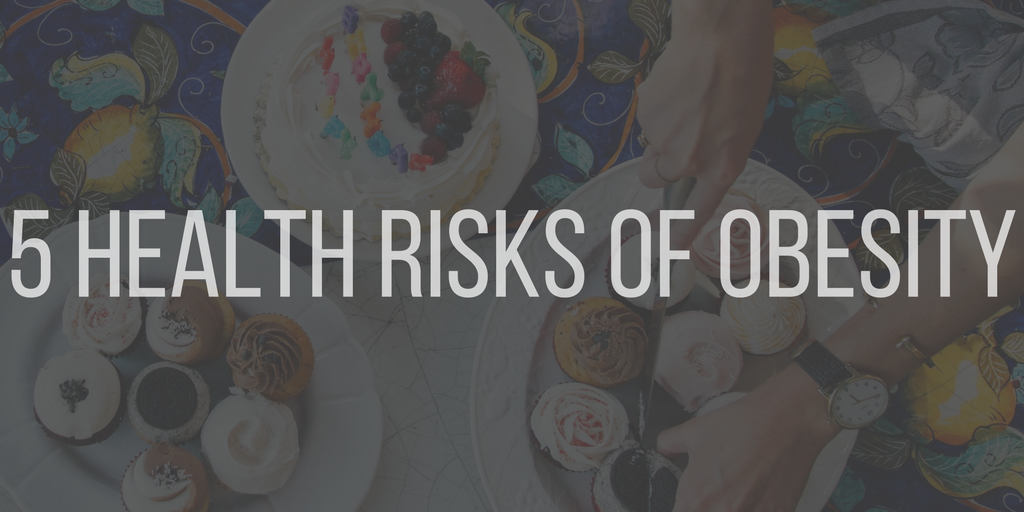Obesity is an epidemic in the United State for children, men, women, and seniors. By definition, obesity entails being 20% more overweight than what your normal weight should be. Many people may not realize it, but your weight has a significant effect on your body and mind. The health risks of obesity are plentiful. Unfortunately, it causes many serious and debilitating illnesses, depression, and affects reproduction. If you're currently overweight, seek help from a doctor in order to address any potential health concerns.
Type 2 Diabetes
Type 2 Diabetes is heavily influenced by your body weight. According to a Nurses Health Study published by Harvard University, middle aged women with a body mass of 35 of higher had increased risk of developing type 2 diabetes. A similar study showed the same results with men. It has been found that stored fat cells around the waist and stomach secrete hormones that cause inflammation. This type of inflammation causes health problems because it changes the way the body processes fat and other foods.
The way the body processes fats and carbs leads to high blood sugar and diabetes. Often the person will eat unhealthy foods such as candy bars or donuts when they're hungry. This burns quickly which leads to more cravings. By losing weight, exercising, and eating a healthy diet you can reduce the chances of getting diabetes 2. When you have diabetes exercising more and finding ways to lose weight can help you control it better. This will often reduce your need for diabetic medicine.
Obesity Causes Depression
The link between obesity, depression, and heart disease has led to many different studies. A Harvard study showed those that were obese were more likely to be depressed than those at a normal weight. Researchers did not know whether depression increases the chances of obesity or vice versa. It may work both ways. An obvious reason for the link, however, is being bullied. Often obese men, women and children are discriminated against, ridiculed, and stereotyped. This can lead to depression among children, teens and adults.
Often those suffering from obesity make poor food choices, do not exercise, and avoid social activities. It has been found that obese people lack the hormone serotonin. This leads them to overeat to restore this hormone level to normal. It is not easy to treat obesity and depression. Often they must be tackled separately in order to successfully conquer the issue.
A doctor can help you with a plan for diet and exercise and often recommend a counselor to talk with. There are medications and surgery when diet and exercise do not work.
Obesity and Reproduction
Obesity often has an effect on fertility. Many women that are overweight suffer from primary ovulatory infertility. A study at Harvard found that infertility was higher in women that were overweight. About 25% of ovulatory infertility in the US is related to obesity. When a woman is pregnant, obesity increased the risks of miscarriage, diabetes, and complications during delivery. It even increases the chances of a child having congenital abnormalities.
In men in some studies concluded that obesity has been linked to low sperm count and poor sperm motility. Obesity does cause problems with conceiving and having children. Many couples that want children have problems with having them due of obesity.
Obesity Is Linked to Heart Disease
Obesity is linked to heart disease. It causes an increase in blood pressure, blood sugar, and cholesterol. All these factors contribute to heart disease. Losing about 5% to 10% of your weight will often prevent you from getting heart disease. Obesity increases the risk of stroke about 64 percent. Women with BMI over 30 or higher had a 62% or higher risk of dying from heart disease. Men with high BMI’s suffered the same risks.
Obesity and Breathing
Obesity impairs the respiratory tract. Fat around the stomach may affect breathing and lung expansion. It can reduce the chest’s flexibility, reduce the strength of muscles, and make the lung passage ways narrow which makes it much harder to breathe. Two diseases linked with obesity are sleep apnea and asthma. Obese men and women have 50% more chance of getting asthma. Sleep apnea often leads to car accidents, daytime sleepiness, hypertension, and heart disease.
These are only a few of the many health risks associated with obesity. The good news is that there are many treatments available that tackle obesity. Weight loss is an important part of controlling obesity. Diet, exercise, counseling, medications, and surgery can all help with this serious problem. Don’t suffer the physical and mental problems of obesity. Go to a doctor and find a solution to your problem.
